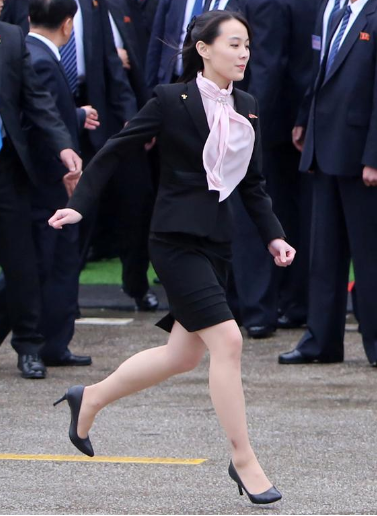President Donald Trump faced a bipartisan backlash after saying he did not believe North Korean leader Kim Jong Un was responsible for the death of American student Otto Warmbier.
“I don’t believe he knew about it,” Trump said of
Kim. “He tells me that he didn’t know about it, and I will take him at his
word.”
Trump’s comments are a reversal from his past statements. In
his 2018 State of the Union address, he criticized North Korea’s “depraved
character” and blamed the country’s “dictatorship” for
Warmbier’s injuries and eventual death.
Warmbier, 22, was arrested for taking a propaganda banner
from a hotel while on a visit to Pyongyang in January 2016 and later sentenced to 15 years of hard labor. He suffered horrific injuries and died shortly after being released
from 17 months of detention.
House Speaker Nancy Pelosi, D-Calif., on Thursday called the president’s remarks strange. “There’s something wrong –with Putin, Kim Jong Un, in my view, thugs — that the president chooses to believe,” she said.
Sen. Cory Gardner, R-Colo., a member of the Senate Foreign
Relations Committee, told Fox News, “Look, Otto Warmbier, they made a
spectacle out of him to the world. Accusing him of being a traitor, a spy. And
they executed him. The blood of Otto Warmbier is on the hands of Kim Jong Un.
There is no doubt in my mind that he knew about it, he allowed it to happen,
and the responsibility lies directly with Kim Jong Un,” he said.
Sen. Mark Warner, D-Va., said Trump’s remarks show he believed an “obvious lie” by Kim. “Otto Warmbier’s bogus arrest and brutal murder was an international incident,” Warner said. “Of course, Kim knew about it. Apparently, the president of the United States is the only one who believes this obvious lie.”
Sen. Ron Wyden, D-Ore., accused Trump of flinching in front of Kim regarding the student’s death: “No American president has ever cowered in front of dictators like @realDonaldTrump,” he said in a tweet.
Rep. Adam Schiff, the chairman of the House intelligence committee, tweeted Thursday. “… accepting Kim’s denial of involvement in Warmbier’s death? Detestable, and harkens back to Trump’s duplicitous acceptances of denials from other dictators.”
“Americans
know the cruelty that was placed on Otto Warmbier by the North Korean
regime,” Nikki Haley, Trump’s former U.N. ambassador, tweeted Thursday.
Former Republican Sen. Rick Santorum of Pennsylvania told CNN that it was “reprehensible” that Trump gave cover to Kim regarding Warmbier’s death. “… This is reprehensible what he just did. I mean he gave cover … to a leader who knew very well what was going on with Otto Warmbier. And again, I don’t understand why the president does this, I am disappointed to say the least that he did it.”
Sen. Mazie Hirono, D-Hawaii, said it’s hard to believe that Kim didn’t know what happened to Warmbier, comparing it to Trump taking Russian President Vladimir Putin’s word over U.S. intelligence that Russia didn’t interfere in the 2016 elections. “I think the president is very gullible in this
regard,” she said. “He seems to have a very odd affinity toward
dictators … it is very odd, and I think it’s misplaced.”
[NBC News]

